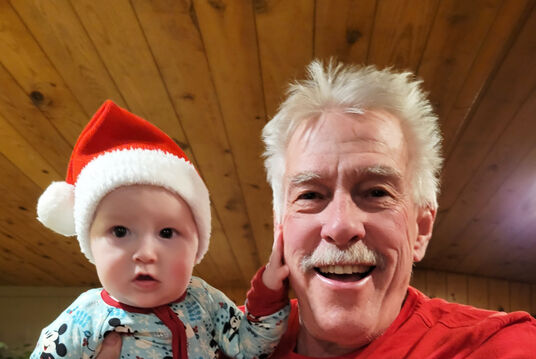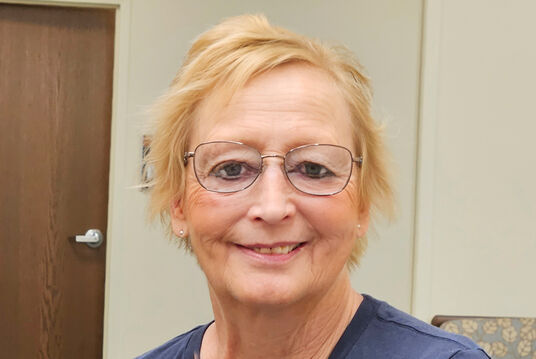

Patient Resources
At Morrison Cancer Center, we understand the significance of serving as a resource for our patients. We make sure you know someone is there every step of the way – from holding your hand during treatment to providing valuable informational links on our website. We know your journey will not be easy, but we help to ease your mind with up-to-date information and helpful guidance.
What is Cancer?
Cancer is a diagnostic term describing illnesses caused by the uncontrolled growth of malignant cells. Our bodies contain a wide array of cells, each containing 23 pairs of chromosomes. Cancer cells typically have genetic chromosomal mutations that alter their behavior. Once those cells become malignant, they grow rapidly and have the potential to cause illness.
Tumors can be either benign or malignant. Benign tumors typically do not cause disease. Malignant tumors are characterized by the ability to invade surrounding normal tissue and spread to other organs in the body. This spreading of cancer cells through the blood or lymphatic system to other parts of the body is called metastasis.
Treatment Overviews
Cancer treatment recommendations are unique for each person. Factors that can influence your treatment plan are overall health, age, type and stage of cancer, and how aggressive it is. Cancer treatments may include surgery, chemotherapy, radiation therapy immunotherapy and/or biotherapy.
Every cancer treatment's goal is a cure. When a cure is not possible, your cancer may be managed much like a chronic disease. There are effective treatments to assist in slowing or controlling cancer growth, and appropriate symptom management will improve your quality of life. Contact your physicians for specific questions about your treatment.
Side-Effects
All cancer treatments have potential side-effects, with symptoms and severity varying with each individual. The type of treatment you are receiving also influences side-effects. Talk to your health care provider if you have questions or problems with treatment side-effects.
Exercise is Important
A regular exercise program offers significant benefits during chemotherapy, including better appetite, improved sleep, increased resistance to fatigue and a feeling of normalcy in your day-to-day activities. Many people with cancer who participate in an exercise program, such as walking, say they feel better and more energetic. They also report fewer side-effects from their treatment. We generally do not limit activities that you can do during treatment. Ideally, you should aim for exercising a minimum of 3 to 4 times per week. There will be days when you do not feel like exercising. Listen to your body and do what you are able to do. Check with your physician before you begin any new exercise program, as it is important to know any precautions.
Support Groups
Many patient advocacy and cancer research groups provide patients and their families with advice, community resources and assistance in coping with a cancer diagnosis. Many also contribute to local and national cancer research endeavors. Joining a cancer support group can provide a source of strength for patients and families.
Accepting Help
You must accept help when you are facing the diagnosis and treatment of cancer. Your physicians will determine your treatment, directing lab work, surgery, chemotherapy, radiation and follow-up tests. This allows you to focus on other aspects of your life.
“What can I do to help?” is a question you will hear often as news of your cancer diagnosis unfolds. Don’t turn away concerned friends and family. Let them help you. Giving them suggestions on how they can help will keep you from receiving five pans of lasagna or two cars arriving at the same time to take your kids to soccer practice!
Determine what you need or want, such as:
- Picking up your children from school or after-school activities
- Helping with rides to the doctor
- Doing laundry or mowing the lawn
- Taking you out for a ride
- Talking or keeping you company when you are having a down day
- Assisting with paperwork or insurance details
If you want help with meals, give suggestions about what sounds good to you or what your family will eat. Suggesting a gift card is helpful, too, so your family can pick-up something when you don’t feel like cooking.
Remember, it’s okay to ask for help. Not only are your friends and family gifting you with their time and assistance, but you are gifting them with the opportunity to help you!
If you want to send thank you notes, a few ideas include:
- Ask each person who helps you to address an envelope with his or her name and address.
- Ask your family members to help write thank you notes. Even small children can draw a picture and you can pen a simple “thank you.”
- Allow a friend to help with thank you notes.
Visits can become overwhelming, so it is beneficial to ask family and friends to call before they visit. There are times when you may be extremely tired and all you want to do is rest. It’s okay for you or your family to say, “Today isn’t a good day, but please check with us tomorrow.”
Financial Guidance
A cancer diagnosis can cause concerns about finances and insurance, and there are several things you can do to prepare. Trusted friends or family can offer assistance.
Financial Matters
- Compile a list of monthly bills and passwords for your online banking and payments. This allows your spouse or a family member to help while you are undergoing treatment.
- Make sure your legal documents are in order, such as your Durable Power of Attorney, Medical Power of Attorney, Advanced Directive and Will.
- If you are concerned about your ability to pay all your monthly obligations, call your creditors and inform them of your situation. Ask if you may make lower payments.
- Rank your bills in order of priority. Pay your rent or mortgage, utilities and buy groceries before anything else.
Insurance Matters
- Familiarize yourself with your insurance coverage. What is your deductible? Do you have a co-pay? Are your physicians ‘in-network’? Do you need preauthorization for chemotherapy?
- Set up a notebook for your medical bills. Include a section for each physician and facility where you receive care. In each section, include the name of the clinic or hospital, as well as the name and phone number of your account representative.
- Use this notebook to track what is billed, claims filed, what your insurance has paid, and what is paid by you. Not only does this help you understand what is billed, paid and owed, but it also helps organize your records for tax purposes.
- Record any phone calls you have with your account representative or insurance company, noting the date and name of the person you talked with and the outcome of the call.
Caregivers
Talk to your friend or loved one after they receive their diagnosis.
If you will be taking on additional responsibilities, make sure you know what is involved. Make a list of all the things you will need in the coming weeks: monthly bills that need to be paid, computer passwords, kids' schedules and insurance information.
You can serve as your loved one’s advocate at physician appointments.
Start a notebook for paperwork. Make a list of physician addresses and phone numbers. Set up a section for each physician treating your family member. Include appointment notes, questions you have for the physicians, and details and notes from phone calls. Add a billing section and include physicians’ statements, along with the amounts paid by insurance and personal accounts.
Give your loved one a break to spend time with friends, go for a walk or just read a book.
Everyone needs some time alone.
Take care of yourself, too.
Spend time with friends, enjoy a favorite hobby or watch a movie. Use a friend as a support person for yourself, sharing thoughts and feelings or attend a caregiver support group. If you need help with your responsibilities, it’s okay to accept help from friends and family.
Your time, love and support are valuable gifts to your loved one!
From The Heart
Caps, Wraps and More
The Caps, Wraps and More program provides cancer patients with caps and hats. It was started by the Mary Lanning Healthcare Foundation and continues through public and private donations. Patients can choose from a variety of caps, scarves and hats, which are displayed in a quiet room at the Cancer Center.
Life After Treatment
Many cancer survivors face a world of questions once their treatment stops. “Cancer survivor” describes anyone who has been diagnosed with cancer, from the time of diagnosis through the rest of his or her life. “Survivor” helps many people think about embracing their life beyond their illness.
A cancer diagnosis can be both a major event and a chance for growth. As difficult as treatment can be, many cancer survivors say the experience led them to make important changes in their lives. Many say they now take time to appreciate each new day. Many also learn how to take better care of themselves and value how others care for them. Others use their experiences to advocate for improved cancer research, treatment, and care.
Those who have undergone cancer treatment describe the first few months as a time of change. It’s not about “getting back to normal,” but rather defining a “new normal.” People often say their life has new meaning and they look at things differently. Expect things to keep changing as you begin your recovery.
Online Resources
Here are valuable cancer resources, which we hope you will find helpful in expanding your research and understanding your disease:
National Cancer Institute
The National Cancer Institute (NCI) provides current information on cancer prevention, screening, diagnosis, treatment, genetics and supportive care. It also lists clinical trials and specific cancer topics, as well as offering free publications such as Facing Forward: Life After Cancer Treatment.
American Cancer Society
The American Cancer Society (ACS) provides information and support to patients, families and caregivers. They also endorse research, advocacy and community support such as I Can Cope and Look Good Feel Better.
National Coalition of Cancer Survivorship
The National Coalition of Cancer Survivorship (NCCS) provides information and resources on cancer support, advocacy and quality of life issues to cancer survivors and their loved ones. Their Cancer Survival Toolboxes are offered free of charge.
Leukemia and Lymphoma Society
The Leukemia and Lymphoma Society (LLS) offers free services to patient and families touched by blood cancers. Their Information Resource Center provides accurate, up-to-date disease and treatment information. They offer co-pay assistance and the Patient Financial Aid program offers a limited amount of financial aid to qualified patients with a blood cancer diagnosis.
National Comprehensive Cancer Network
National Comprehensive Cancer Network (NCCN) provides information and resources regarding diagnosis and treatment of all types of cancers. They offer free NCCN Guidelines for Patients on specific cancer diagnoses.





